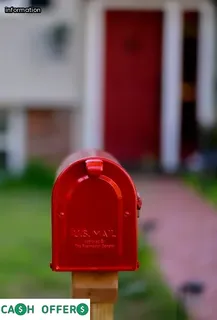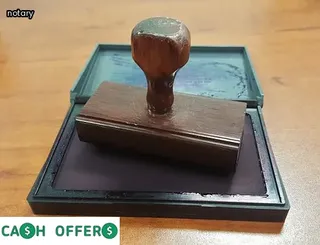In South Carolina, the most commonly used deed is the Quit Claim Deed. This type of deed is usually used to transfer ownership or interest in property without any warranties or guarantees.
With a Quit Claim Deed, the grantor (the current owner) makes no guarantee as to the condition or title of the property they are transferring. A Quit Claim Deed can also be used to clarify title issues and remove clouds from titles that exist on properties.
The process for preparing a South Carolina Quit Claim Deed is relatively simple and straightforward; however, it is important to consult an attorney for legal advice before filing a Quit Claim Deed in order to ensure that all necessary steps have been taken correctly. Once all the paperwork has been completed, the deed must then be recorded with the clerk of court in the county where the property is located in order to be legally binding.

Understanding South Carolina Quitclaim Deed forms is essential for anyone who wishes to easily prepare one for their home. These documents are legal in nature and can be used to transfer the title of a property from one person or entity to another.
It is important to understand the language used in these documents and the process for completing them correctly. The first step is to obtain a South Carolina Quitclaim Deed form from the local county court or clerk's office.
This form must be filled out completely and accurately, providing details such as the names of all involved parties, the property address, tax information, and any special conditions that may apply. After completion, two witnesses must sign the document before it can be submitted for filing with the county court or clerk's office.
Additionally, it is important to make sure that all signatures on this document have been notarized prior to submission. Understanding South Carolina Quitclaim Deed forms is vital for those who wish to easily transfer their home title without any complications or delays.
When it comes to transferring property, the South Carolina Quit Claim Deed is a popular choice. This document allows for the transfer of real estate from one party to another with minimal effort and cost.
The quit claim deed must be completed correctly in order to ensure that the transfer is legally binding. Preparing a South Carolina Quit Claim Deed can seem like a daunting task, but it doesn't have to be difficult.
With the right steps and careful preparation, anyone can easily create a valid quit claim deed for their home. First, fill out all of the relevant information such as the grantor's name, the grantee's name, and a legal description of the property being transferred.
Next, have the document notarized by a local notary public or other authorized official. Finally, make sure you meet all state-mandated requirements such as filing fees or additional paperwork before submitting your quit claim deed to your local recorder's office for final approval.
Following these simple steps will help make sure that your quit claim deed is properly prepared and ready to be officially recorded in South Carolina.

A South Carolina Quitclaim deed can be a great tool in transferring ownership of real estate, but it’s important to understand the advantages and disadvantages associated with this type of deed. One major benefit is that the transfer is generally faster than other types of deeds, since it does not require an extensive title search or survey.
This means that a quitclaim deed can often be prepared quickly and without outside help. In addition, since a quitclaim deed does not guarantee clear title to the property, costs associated with title insurance are generally lower.
On the other hand, this lack of guarantee can also be a disadvantage; if there is a lien on the property or other title defects, they will not be revealed by the quitclaim deed. Furthermore, because a quitclaim deed provides no warranty as to the condition of the title, it can create potential liability for both parties involved in the transaction.
Ultimately, understanding all of these factors is key when deciding whether or not to use a South Carolina Quitclaim Deed to transfer ownership of real estate.
Filing a South Carolina Quitclaim Deed is not as complicated as it may seem. To begin the process, an individual must obtain a blank deed form from their county recorder’s office.
Once the form is acquired, it should be filled out completely and accurately. The deed must have the name of the current homeowner who is transferring ownership, as well as the name of the new homeowner.
After filling out all of the necessary information on the deed, both parties need to sign and date it in front of a notary public or two witnesses. After signing, one copy of the deed should be delivered to either the county recorder’s office or Clerk of Court for filing.
It is important that you do not forget to deliver this document because if you do, then your deed will not be legally valid and could lead to potential complications down the line.

A South Carolina Quit Claim Deed is an important document that can be used in a variety of situations. It is most commonly used when changing the ownership of a property, such as transferring real estate between family members, selling or buying a home, or adding or removing someone from the title.
It can also be used to eliminate a spouse’s rights to a property after divorce, or to make changes to the title of a deceased person’s estate. Preparing and filing a Quit Claim Deed for your home in South Carolina does not have to be difficult.
With the right resources and information it can easily be done with minimal hassle and expense.
Preparing a South Carolina quit claim deed form is relatively easy. First, you will need to obtain a blank copy of the form.
This can be done in person at your local county or city clerk's office, or online from various sources. Then, you will need to provide the names and addresses of all parties involved in the deed and a legal description of the property that is being transferred.
It is important to ensure that all information provided is accurate and up-to-date. Once all of the information has been filled in, it must be signed by all parties involved.
The signature must also be witnessed by at least two people who are not related to either party. After this step has been completed, you should have your quit claim deed ready for filing with the appropriate county or city clerk's office.
Filing fees may apply if you choose to file in person, so make sure you inquire about these costs ahead of time. Once filed, make sure you keep a copy for your records as proof of transfer.

When preparing a South Carolina Quit Claim Deed for your home, there are important considerations to take into account. It is essential to accurately identify all parties involved in the transfer of ownership in the deed.
This includes names, addresses, and relationship to other parties. All parties must sign the document in front of a notary public and have it recorded with the county register of deeds.
Furthermore, make sure that you include a legal description of the property being transferred in the quit claim deed. It is important to ensure accuracy when completing this document as incorrect information can lead to serious legal issues.
Be sure to check with your local county clerk office for any additional requirements or regulations before filing your quit claim deed for recording.
Preparing a South Carolina Quit Claim Deed for your home can seem like an overwhelming process, but it doesn't have to be. In order to properly complete the deed and ensure that all documents are included, there are a few key items that you need to include.
First, you will need the deed itself which must include the grantor's name (the person giving up their claim), the grantee's name (the person receiving the claim), and a legal description of the property being transferred. You will also need to provide proof of ownership of the property such as a mortgage or other lien statement.
Additionally, any documents related to encumbrances on the property must be presented at the time of transfer including any liens or other restrictions that apply to the property. Finally, in some cases you may also need affidavits from witnesses who can verify that both parties involved in the transaction have signed off on it.
Having all these documents in place before submitting a quit claim deed can help make sure that everything is completed correctly and efficiently so that you can quickly and easily transfer your home's title.

Filing a South Carolina Quit Claim Deed requires meeting certain notice requirements to ensure the transfer of ownership is valid. Before filing, you must provide a recorded notice to any lenders and lien holders on the property.
This notice should include information such as the address of the property, legal description, and names of both parties involved in the transfer. You must also provide written notice to all adult occupants living at the property for three weeks prior to filing.
This can be done through certified mail or in-person delivery. When preparing a South Carolina Quit Claim Deed, it's important to verify that all applicable notices have been provided properly.
Doing so will help ensure that the process runs smoothly and without complications down the line.
It is important to understand and interpret the language of a South Carolina quitclaim deed in order to easily prepare one for your home. A quitclaim deed is a legal document that transfers a person's interest in a property from one individual to another, with no warranties or guarantees of title.
The document must include certain elements, such as the names and addresses of the parties involved, a description of the property being transferred, and the date on which the transfer becomes effective. When preparing a quitclaim deed for South Carolina, there are certain requirements that must be met in order to ensure legal validity.
These include having all signatures notarized and filing with the applicable county clerk's office. It is also important to read over the deed carefully before signing it to ensure that all details are accurate.
Additionally, consulting an attorney who specializes in real estate law may be beneficial if you have any questions or concerns about your quitclaim deed. Understanding and interpreting the language of South Carolina quitclaim deeds is essential for completing this process quickly and efficiently when transferring ownership of your home.

Signing a South Carolina Quit Claim Deed is a legally binding document that transfers ownership and rights to real estate from one person to another. When signing this deed, it is important to understand the rights and obligations associated with it.
The grantor, or seller, has the right to transfer their title of ownership in the property and any interest they might have had in it previously. The grantee, or buyer, acquires whatever rights and title the grantor had in the real estate at the time of execution.
This includes any liabilities such as mortgages or unpaid taxes that may be attached to the property. It is also important for both parties to understand that this deed does not provide any warranties or guarantees for either party as far as title quality or liens against the property are concerned.
Additionally, both sides should make sure that all necessary forms are completed properly before executing the deed so their interests are properly protected.
Failing to comply with the rules of a South Carolina Quit Claim Deed could have serious legal consequences. Not only could you be sued in civil court and ordered to pay damages, but you could also be subject to criminal penalties such as fines or even jail time.
It is important to make sure that all paperwork is filed correctly and completely, or else you may face adverse legal action. Additionally, if any of the information provided on the deed is incorrect or inaccurate, this can lead to disputes which can complicate matters even further.
Furthermore, if any of the parties involved fail to meet their obligations as outlined in the deed, this can result in costly litigation and delays in transferring title. To avoid these potential legal issues, it is imperative that those preparing a South Carolina Quit Claim Deed take all necessary steps to ensure accuracy and legality.

Filing a South Carolina Quit Claim Deed for your home does not require a notarized document to be officially processed. However, by having a notary witness the signing of your deed, you can add an extra layer of protection and validity to the document.
It is important to keep in mind that the Quit Claim Deed must still be filed with the county register of deeds office. This will ensure that your deed is legally binding and recorded in public records.
When filing a SC Quit Claim Deed, it is also important to provide all necessary paperwork such as proof of ownership and required identification documents. Additionally, make sure to have any necessary signatures witnessed or notarized if needed.
Filing fees may apply depending on the county you are filing in, so be sure to check with your local county clerk before submitting any documents. Preparation and filing a South Carolina Quit Claim Deed for your home can be straightforward if all the proper steps are taken and followed correctly.
If you are looking to find resources on South Carolina Real Estate Laws & Regulations to help you prepare a Quit Claim Deed for your Home, then the South Carolina Bar Association and local county courthouses are great places to start. The South Carolina Bar Association offers resources, such as an online library of legal forms, which includes the Quit Claim Deed form.
Additionally, county courthouses have information available on real estate laws as well as copies of Quit Claim Deeds that may provide guidance for completing your own deed. It is also possible to hire an attorney to assist in preparing a Quit Claim Deed if needed.
In addition, there are many websites offering information on South Carolina Real Estate Laws & Regulations, so be sure to utilize them as well in order to become better informed when preparing your own Quit Claim Deed.

Filing a South Carolina Quitclaim Deed correctly is essential to make sure it is legally enforceable. To guarantee your deed will be accepted, start by making sure all parties involved are listed correctly on the document.
The deed should include the full legal name of each party, and that information should match any government-issued identification. It is also important to ensure all names are spelled correctly and without any abbreviations.
After that information is entered, sign the deed in front of a notary public and have it notarized. Then include any additional documents required by your county clerk's office such as proof of property ownership or other forms of identification.
Finally, make sure all paperwork is turned in to the appropriate office with the correct fees for processing included before filing the quitclaim deed with the county recorder's office. Following these steps will help ensure your South Carolina Quitclaim Deed is legally enforceable and properly filed with your local county recorder's office.
It is important to understand when it is necessary to amend or revoke a South Carolina quit claim deed. Generally, when one party wants to transfer the title of their home to another party, they must create a quit claim deed.
This document states that the grantor (the party transferring the title) no longer has any claims to the property and grants all interest in the property to the grantee (the party receiving ownership). In some cases, an amendment or revocation may be needed if there are errors in the initial document or if changes need to be made.
The process for revoking a quit claim deed varies depending on whether it was recorded with the county office. If it has been recorded with the county, both parties must sign an affidavit stating that they agree to revoke it and file it at their local courthouse.
It is also important to note that if either party needs to make changes after recording, they must prepare an Amendment To Quit Claim Deed instead of revoking it outright. Taking these steps can help ensure that your South Carolina quit claim deed is properly prepared and legally binding.

When signing or filing a South Carolina Quit Claim Deed for your home, there are several tips to keep in mind to avoid any potential conflict. First and foremost, be sure you understand the deed and the implications of signing it.
Make sure both parties involved fully comprehend all the details before signing. Next, ensure that the deed is properly filled out according to state law and is witnessed by two witnesses who are not related to either party.
Additionally, make sure you file the deed with the local Register of Deeds office in order to record it and make it legally binding. Furthermore, if there are any changes made to the document after signature, both parties should initial these changes in order to protect themselves from future disputes.
Finally, if possible consult an attorney or legal professional before signing or filing any documents related to a quit claim deed as this can help mitigate potential issues down the road.
When selling or transferring real estate, it is important to protect yourself from potential legal issues by using a South Carolina Quit Claim Deed. A SC Quit Claim Deed is a legal document that transfers ownership of real property from one party to another.
Preparing this document can be done easily and quickly with the help of an experienced attorney. The document must include the names of both parties involved in the transaction, the legal description of the property being transferred, and any other pertinent information such as any limitations on the transfer or details about liens or mortgages associated with the property.
It must also have witnesses sign it and be notarized before it is considered legally binding. With all of these steps in place, you can feel confident that your rights will be protected when transferring real estate in South Carolina.

Verifying the validity of a signed South Carolina Quit Claim Deed is an important step for anyone transferring ownership of their home. Before signing and submitting the deed, it is essential to double-check the document for accuracy and to make sure it was properly executed.
To do this, you should look for key elements such as all parties' names, addresses, signatures, and dates. Additionally, make sure that the deed contains language specific to South Carolina laws and statutes.
Finally, you should have the deed notarized by a qualified notary in order to ensure its validity. By taking these steps before submitting your Quit Claim Deed, you can be confident that all the necessary requirements are met and that your transfer of ownership will be successful.
Although filing a Quit Claim Deed in South Carolina is relatively straightforward, it's important to consider whether or not you need an attorney for the process. In most cases, it's not necessary to hire an attorney to file a Quit Claim Deed in South Carolina.
However, if you're unsure of your rights and responsibilities as the grantor or grantee in the deed, or have any other questions regarding filing the deed, consulting with an experienced real estate lawyer may be beneficial. They can help provide advice and guidance on how to easily prepare and file a Quit Claim Deed in South Carolina, ensuring that all legal requirements are met.
Additionally, they can also advise on potential risks associated with filing a Quit Claim Deed and ensure that your interests are adequately protected.

Filing a quit claim deed in South Carolina is relatively inexpensive, with the filing fee costing as little as $25. Additionally, there are no other associated costs such as legal fees or taxes that need to be taken into consideration when preparing a quit claim deed in South Carolina.
The process of preparing a quit claim deed is also easy and straightforward, making it possible for individuals to do it themselves without needing the assistance of an attorney. All that is needed to prepare a quit claim deed in South Carolina is the necessary paperwork and information about who will be listed on the deed.
With this information, individuals can easily fill out and submit the required forms to the appropriate county office and file their quit claim deed in no time.
A quit claim deed is a legal document that transfers ownership of a piece of property from one party to another. In South Carolina, this type of deed is commonly used when transferring real estate from one person or entity to another without warranties or guarantees.
It is important to understand all the details and requirements of the quit claim deed before signing it. To prepare a quit claim deed in South Carolina, you must first obtain the appropriate form from your county's office of the Register of Deeds.
The form should include information about the grantor (seller) and grantee (buyer), and should be signed by both parties in front of a notary public. Additionally, you may need to have the form recorded with your county in order for it to be legally binding.
Once all steps are completed, the new owner will become legally responsible for taxes on the property. Understanding how a quit claim deed works in South Carolina can help make the process easier and ensure that ownership is properly transferred between parties.
Transferring a property deed in South Carolina is relatively inexpensive. The fees to transfer a deed vary depending on the county you are located in, but generally range from $15 to $20 for the deed itself and an additional fee of approximately $25 for recording the deed with the county Register of Deeds Office. For a Quit Claim Deed, there may be no transfer tax due; however, if a transfer tax does apply, it will typically be between
0075% and 1% of the sale price of the property. Additionally, some counties may charge an extra fee to cover their administrative costs associated with recording the documents. It is important to check with your local county Register of Deeds Office to confirm all applicable fees prior to preparing your South Carolina Quit Claim Deed.